Where do the parties stand on Internet and Privacy issues?
With the election just days away, voters are getting ready to vote. But, where do the parties stand on Internet and privacy issues?
While cell phone affordability has been the major telecommunications issue this election, parties have been making promises about everything from rural broadband to mass surveillance.
These are all issues that will affect how we use the Internet for years to come, so we have been tracking all of the main* parties’ election promises to see how they will affect cell phone affordability, broadband access, and privacy.
In case you missed it, you can read OpenMedia’s pro-Internet platform here. We are using this as the standard to judge all parties’ election platforms as we believe our pro-Internet platform is a great starting point to ensure everyone has affordable, reliable and surveillance-free Internet access.
Click on the following links to scroll down to the different issues:
- Cell phone affordability
- Internet Access
- Privacy and Mass Surveillance
- Canadian Content and Tax on Digital Platforms
Cell Phone Affordability
Analysis: From the start, we were pleased to see that three of the top parties, the Liberals, Greens and NDP, decided to make cell phone affordability a major campaign issue. This has become such a big issue this election, that the NDP even made it one of the conditions to support a coalition government in the case of a minority.
All three parties promised to bring in more competition, although the Green party platform was vague on how they would achieve this. We were also disappointed the Liberal party has chosen to lower cell phone prices by negotiating with the Big Three. Decades of experience tell us that the Big Three are unwilling to lower prices by their own volition and we need to increase competition in the market to help lower prices.
More than anything, we were disappointed that the Conservative party chose to ignore this issue altogether, as it’s clearly a major issue for voters.
Internet Access
Analysis: While this issue didn’t capture the same level of attention as cell phone affordability, we were still pleased to see all parties put some thought into this. Rural communities are chronically underserved by Internet service providers (ISPs), so it was encouraging to see the Conservatives and the Greens propose ways to improve rural Internet access.
What all parties are lacking are concrete plans on how they will achieve their Internet access targets or a funding formula for this (except for the Greens, who promised $400 million towards a broadband strategy).
Privacy and Mass Surveillance
Analysis: While all parties are making promises to strengthen the privacy protections of people in Canada, the Green Party has the most complete privacy platform. They are proposing policies that would increase government transparency, curtail mass surveillance and better protect the data collected by private companies. What concerns us about their platform is their proposal to validate the identities of social media users, which would essentially end online privacy and could put a chill on free expression.
The Greens are also the only party to say in their platform they would make political parties subject to privacy legislation. Currently, parties do not have to follow federal privacy legislation, putting voters’ information at risk. While the NDP has previously mentioned it would support making parties follow privacy legislation, they did not include this in their platform.
Canadian Content and Tax on Digital Platforms
Analysis: This is one of the more contentious issues surrounding the Internet. Canadian broadcasters, including Bell, Rogers and the CBC, have been calling on the government to tax the Internet to fund Canadian content and to treat online streaming like cable. For years, political parties have pushed back on this idea as it would increase the already high cost of Internet access, making it even more difficult for many Canadians to access it.
This election, however, the tides are turning, with all parties proposing some kind on digital platforms. While we believe digital platforms should pay the same sales and corporate taxes as everyone else, we think the Internet itself should not be taxed to fund CanCon. People use the Internet for everything from work to online streaming, and consumers shouldn’t have to pay higher Internet prices to subsidize companies like Bell and the CBC. Instead, if the government wishes to subsidize more Canadian content, these subsidies should come from general revenue.
Any proposal that makes the Internet more expensive should be scrapped.
If you didn’t vote already, be sure to head to the polls on Monday, October 21. You can find information about when, where and how to vote at Elections Canada’s website, by clicking here.
You can find the party platforms for all parties using the following links:
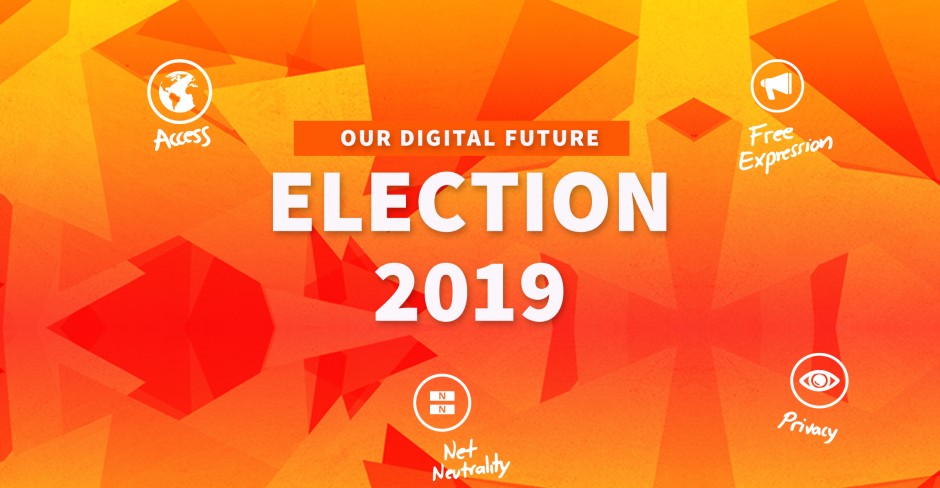

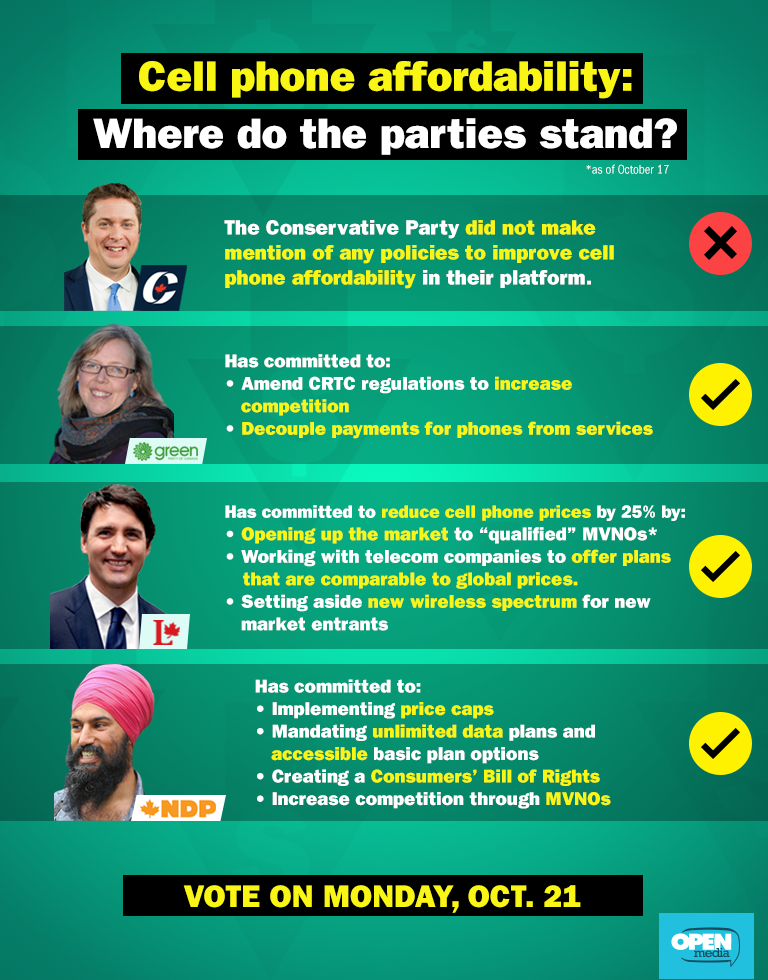
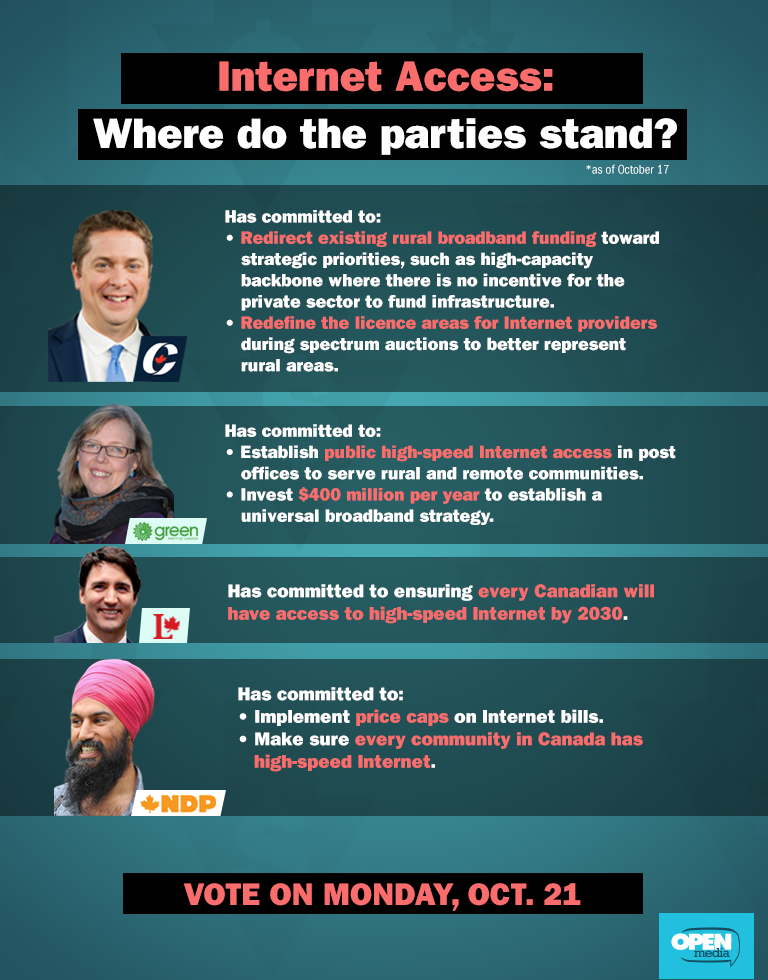
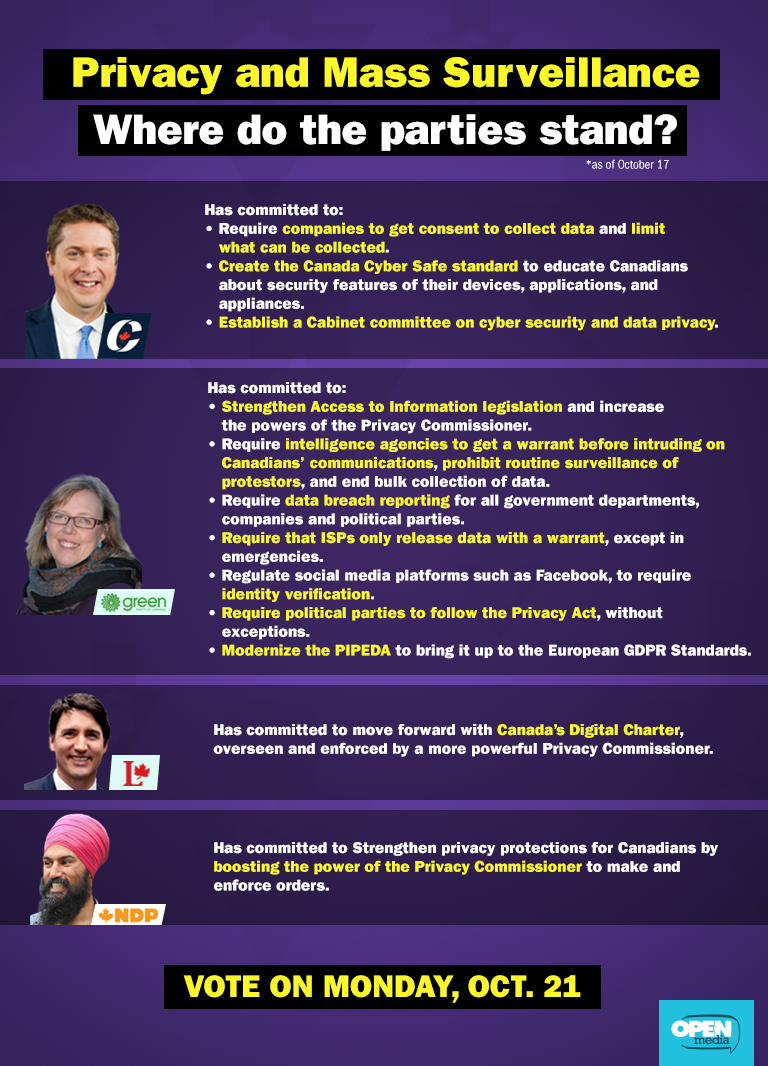
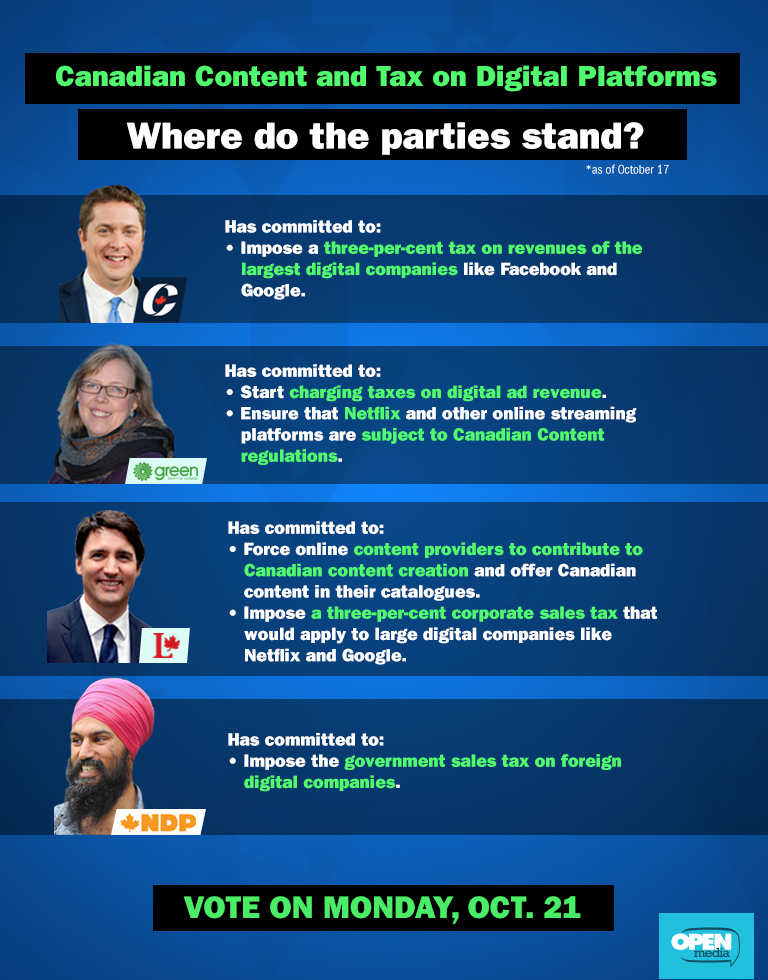
 Take action now!
Take action now!
 Sign up to be in the loop
Sign up to be in the loop
 Donate to support our work
Donate to support our work